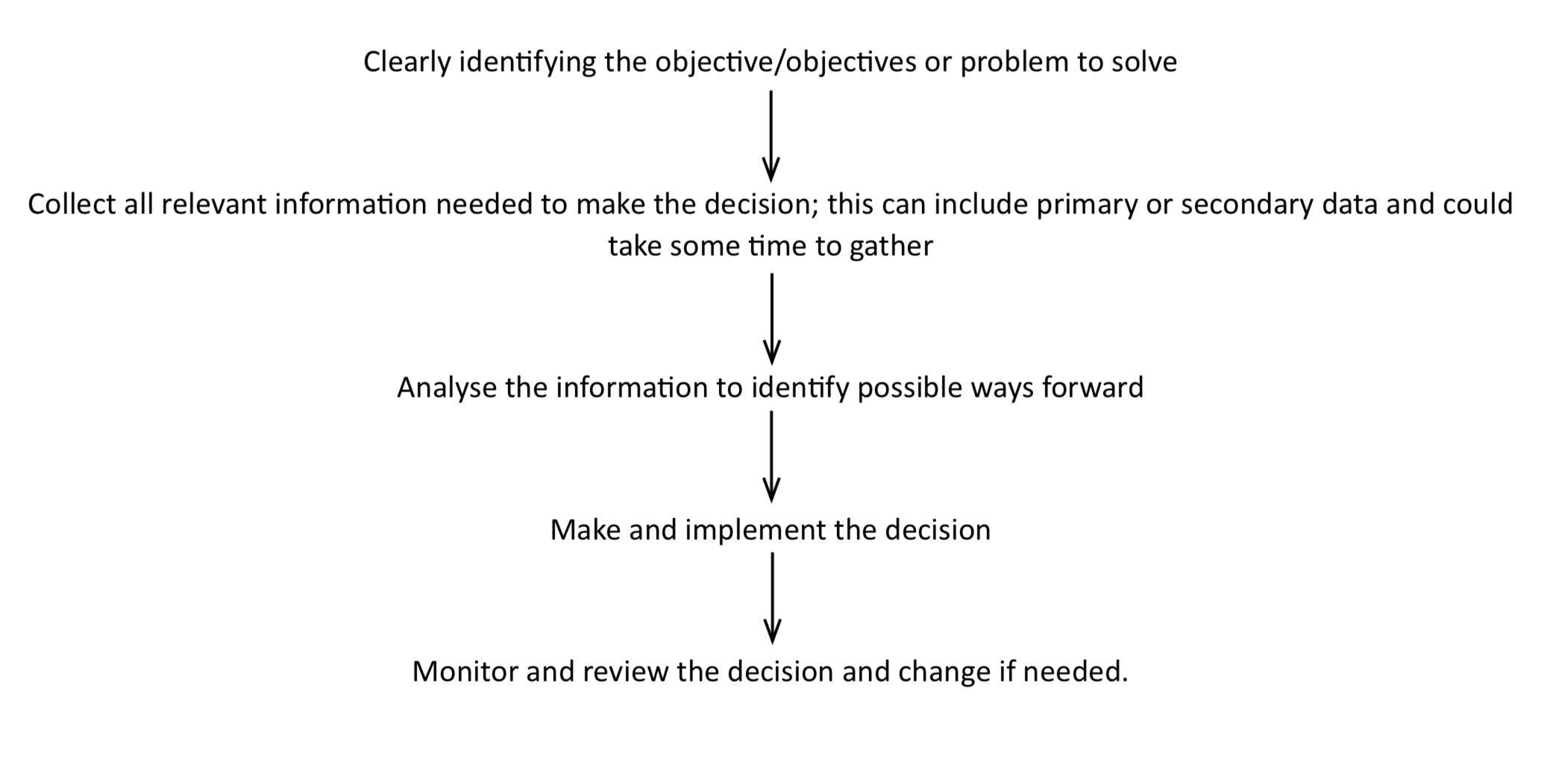Decision Making Models
1/5
There's no tags or description
Looks like no tags are added yet.
Name | Mastery | Learn | Test | Matching | Spaced |
|---|
No study sessions yet.
6 Terms
Strategic decisions
Long term and will affect the direction the business takes
These decisions will affect the entire business and will be made by the owners or senior management.
Are often complex and may result in major organisational change internal to the business or in the markets, or new markets they operate in
Involve a large financial commitment in order to carry out the decision, may take a few
years, and a few million pounds, to see if strategic decisions have had the positive affect anticipated by the business
Tactical Decisions
Tend to be medium term, they should aim to implement strategic decisions
Less complex than strategic decisions and are usually carried out by middle management
Can also be more flexible – if it is failing to meets its objective then it can be changed
Operational Decisions
Are the day to day decisions made in a business
These are lower level decisions that tend to be short term and have little risk
A business will make hundreds of operational decisions in a typical day by a range of employees, as they do not need the careful thought and planning of strategic and tactical decisions
Many decisions at this level are routine and can be taken fairly quickly
Why is decision making important?
Decision-making can solve problems for a business
Some decisions will be difficult to make and they may have negative outcomes for certain stakeholders of the business, such as redundancy for employees.
Whoever is making the decision, it is important that the decision made is based on the common good for the business in order to help achieve its aims and objectives.
Scientific Decision Making
Is favoured by most businesses making strategic and tactical decisions as it is based on logic and evidence and should reduce the risk of failure
Includes the consideration of alternative decisions, so all possible courses of action are included and the business will undertake a full analysis before making any decisions

Intuitive Decision Making
Uses experience and intuition (gut feeling) to make a decision
This has proved successful for many entrepreneurs and managers who use their experiences and emotions to make a decision
Can be made quickly and are often useful for operational decisions, however at strategic and tactical level there is a large risk on relying on intuitive decision making alone